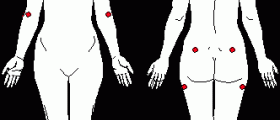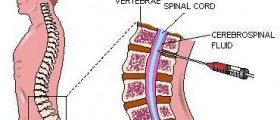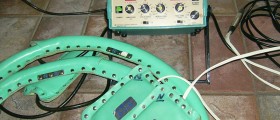Dysautonomia is a term used to describe the failure of the autonomic nervous system. Autonomic nervous system, also known as the visceral nervous system, is a part of the peripheral nervous system that controls body functions below the level of human consciousness. For example, the autonomic nervous system controls our involuntary actions such as heart beating, respiration, digestion, breathing, and salivation, diameter of the pupils, urination and even sexual arousal. When an autonomic nervous system breaks down or fails, the rate of these actions becomes affected and patient’s body processes may start speeding up at the abnormal rate.
Why does it happen?
Healthy functioning autonomic nervous system is composed of two parts that work together. First part of the autonomic nervous system is the sympathetic nervous system, which accelerates the rate of various body functions. The parasympathetic nervous system is the other part of the autonomic nervous system, and its role is to slow down and relax various processes in the body. Normally, these two fractions work together and react appropriately to different stimuli. However, when the autonomic nervous system becomes affected, the autonomous nervous system may start sending signals to speed up all body processes, no matter what kind of stimuli it receives.
Signs and symptoms
Symptoms of dysautonomia usually feel like symptoms of the panic attack. They typically include irregular heartbeat and extremely high heart rate, pain in the chest, fatigue and weakness, sensation of being choked, dizziness, vertigo, hot and cold flashes, trembling or shaking, and fear of dying. The symptoms are extremely frightening but the condition itself is not life threatening. However, if left untreated, dysautonomia may severely affect patient’s everyday functioning.
Treatment
The exact cause of dysautonomia is yet unknown but in many cases it results from autoimmune disorders, degenerative diseases, exposure to chemicals, genetic factors, physical trauma, pregnancy, viral diseases or even a bad body posture that causes compression of the arteries and nerves. Therefore, there is a wide range of treatment options available. One of the most popular non-drug therapies includes maintaining a daily level of physical activity, which may help to stabilize the autonomic nervous system. Taking dietary supplements is also highly recommended. Drug therapies include tricyclic antidepressants, reuptake inhibitors, anti-anxiety drugs, and drugs that regulate low blood pressure. This may be important for recovery since most of the symptoms of dysautonomia aggravate when the blood pressure drops. In some cases, doctors will recommend non-steroidal anti-inflammatory drugs to help control the pains associated with this condition.

















Your thoughts on this
Loading...